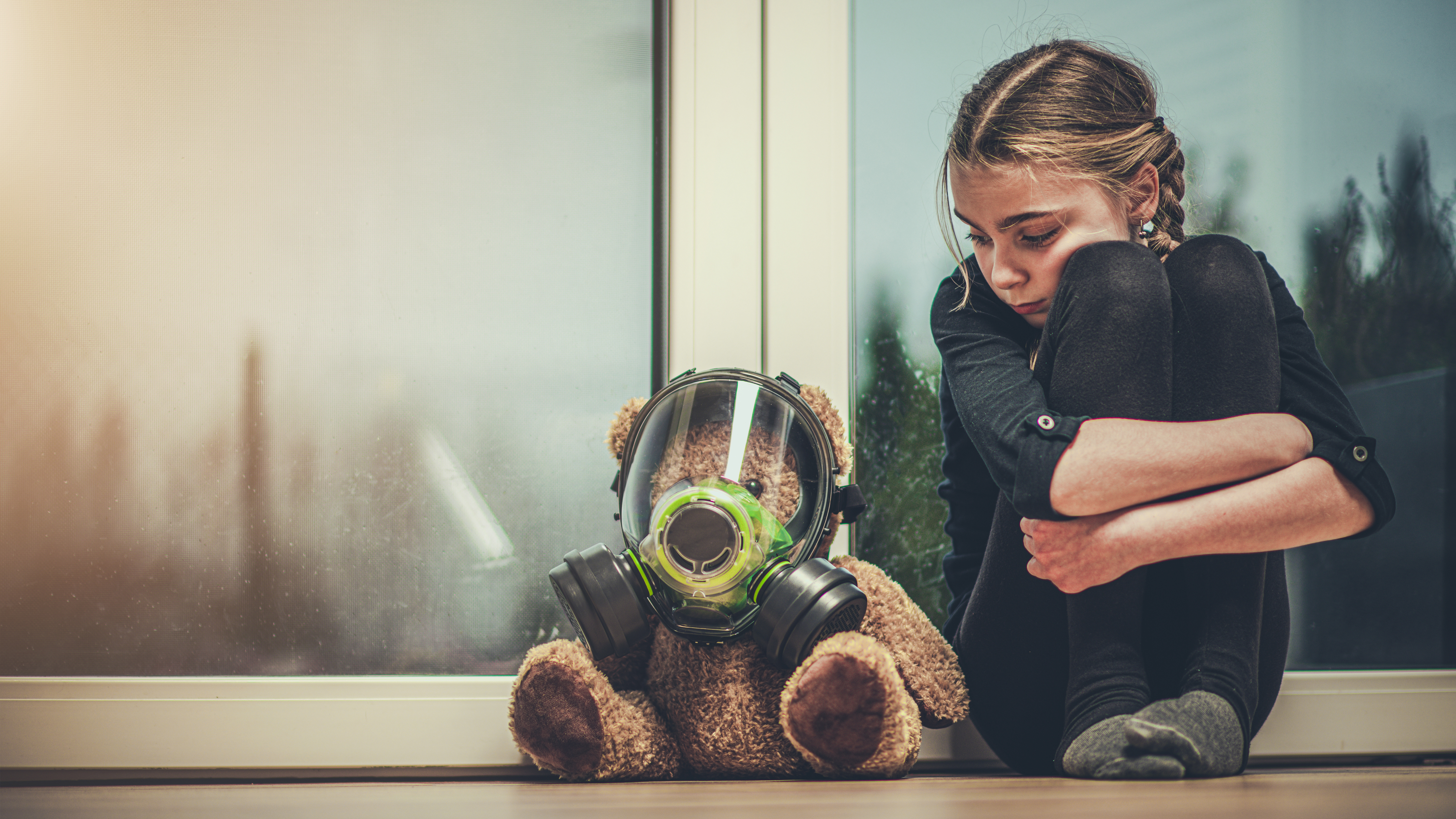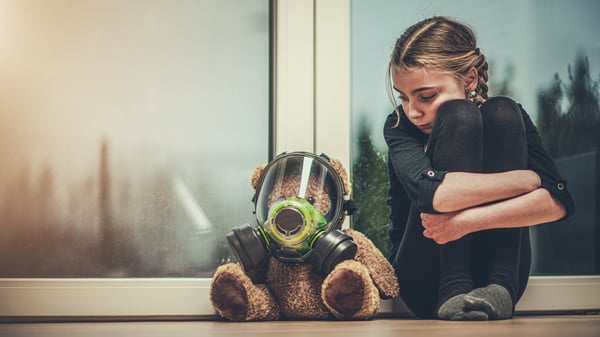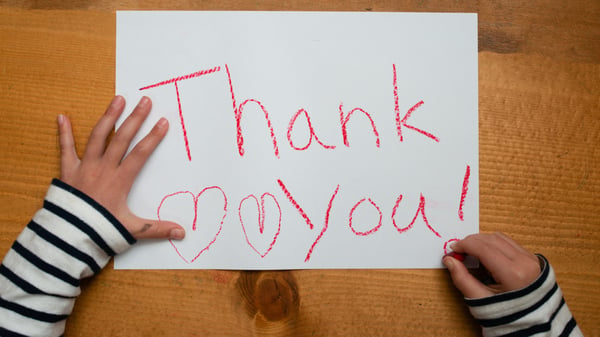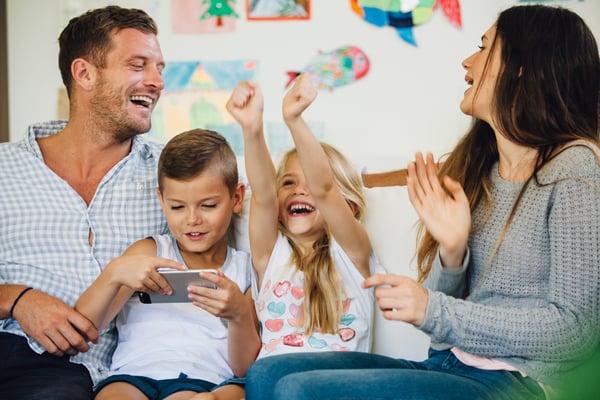5 min read
Create Emotional Connections
By: Amanda Clear and Casey Peters on Apr 13, 2020 2:19:35 PM

We all are experiencing an array of feelings during the Covid-19 crisis, children included. Many of these feelings are heightened as state and government officials ask us to separate from family, friends, teachers, and co-workers. As a parent, you may be unsure how to help your child cope. Try these strategies for supporting your own emotional health and that of your family throughout this challenging time.
Identify Feelings
Start by helping your children put a name to their feelings. Encourage them to try to explain what they are experiencing so you can put a name to the emotion. This process will help them identify their feelings now and in the future. Let your child know that it's okay to have these different feelings.
For more ideas on helping kids to cope, visit the Kids for Peace website. You can also visit the Child Mind Institute for information on practicing mindfulness with your family.

Get Creative
Art is great therapy for managing anxiety as it can help to relieve stress and can often serve as an emotional outlet. Creating works of art can provide a sense of control and help individuals communicate their feelings to others.
- Set aside time for your children to create art. If possible, provide them with different art mediums to choose from such as pencils, colored pencils, crayons, paint, or clay. When they finish, ask them to explain their art to you if they feel comfortable doing so. Let your children explore their feelings.
- If you children are proud of their work, show it off! Make a video call to friends and family or mail a drawing to boost someone’s spirit.
Learn more about the mental health benefits of art here.
Express Gratitude
Expressing gratitude is a great way to reduce stress and depression while increasing happiness.
- Encouraging your children to brainstorm reasons for which they are grateful and create a list. Do this activity as a family and write all the ideas on a dry erase board. Then, hang it in a place that’s easy to see throughout the day.
- For a more personal activity, encourage your children to start a gratitude journal. They can decorate the front of the journal as an art project. Each day, ask them to write about something for which they are grateful inside the journal. Not only is writing a great way to relieve stress, it’s also helpful for children to get emotions down on paper and out of their minds. Encourage them to share their work, or allow them to keep it private if they prefer.
Learn more about the benefits of gratitude in this article from PsychologyToday. You can also learn how gratitude affects your brain in this article from the Greater Good Magazine.
Show Kindness
Showing kindness supports physical and mental health. When you are kind, your brain releases endorphins, or “feel-good” chemicals throughout your body. These chemicals improve your mood and feelings. Acts of kindness also promote gratitude, which leads to feeling happier. Here are some simple ways you and your children can do small acts of kindness.
- While socially distancing, help your children find a PenPal to whom they can send letters and pictures in the mail.
- You could also send “thinking of you” cards to family members and friends, nursing home residents, or to medical staff in the hospitals.

Build Bonds
Now is the perfect for family building and bonding. Spend this extra time focusing on your relationships with family members and have fun with them. Building family relationships helps reduce stress and supports coping skills. Try these activities for some family fun.
- Add a game night to your calendar. Include extended family or friends by using video calls to help them join in on the fun. Try bingo, for example. Have each player create their own bingo card. Select a bingo caller. Write the numbers on small pieces of paper and place them in a bowl. Have the caller announce the number to the group.
- Have a weekly family movie night. Choose a movie, grab some snacks, and enjoy spending time with your family members. Ask aunts, uncles, and cousins to watch the same movie, too, and then share what you loved about the movie on a video chat the next day.

Stay Connected
One of the main reasons social distancing is difficult for so many people is because socialization improves our overall health, reduces anxiety, and increases happiness. Just because you need to keep your distance doesn’t mean you can’t be social.
- Stay connected through video calls and video conferencing apps. Help your children arrange video chats with friends or classmates. Have breakfast with Grandma via video chat or have her read a bedtime story from her home.
- Create a playlist of your favorite, feel-good songs. Share the playlist with friends and family, and then plan a time to dance it out together, virtually!
You can see a great infographic on the importance of staying connected in this article from Stanford School of Medicine. For more ideas on ways you can stay connected, visit the Mental Health America website.
Although times are difficult, we must continue to connect and support one another. We want to hear how your family is supporting each other. Add a comment below to tell us how you stay connected?
 Amanda Clear is a senior manager for Lincoln Learning Solutions and has been with the company for four years. The scope of her works includes promoting the integration of social and emotional learning and other educational movements into the Lincoln Empowered curriculum content. Amanda has a Bachelor of Arts in Psychology and is currently working towards a Masters in Applied Psychology. She is married with two very active toddler boys. Amanda is a veteran of the Pennsylvania Army National Guard. She is merging her passion for veterans and mental health by serving as a volunteer ambassador for Mission 22.
Amanda Clear is a senior manager for Lincoln Learning Solutions and has been with the company for four years. The scope of her works includes promoting the integration of social and emotional learning and other educational movements into the Lincoln Empowered curriculum content. Amanda has a Bachelor of Arts in Psychology and is currently working towards a Masters in Applied Psychology. She is married with two very active toddler boys. Amanda is a veteran of the Pennsylvania Army National Guard. She is merging her passion for veterans and mental health by serving as a volunteer ambassador for Mission 22.
 Casey Peters joined the Lincoln Learning team three years ago. She is a curriculum author and part of the curriculum integration team which examines the integration of social and emotional learning in our content (among other areas). Casey has a Bachelor of Science in Elementary Education and is currently pursuing a Masters in Elementary Education. She has two children, ages twelve and eight, and they love spending their days at the football and baseball fields. Casey is engaged to her fiancé, Will, who is a police officer. They are currently planning an October wedding. In her free time, Casey enjoys reading and crafting.
Casey Peters joined the Lincoln Learning team three years ago. She is a curriculum author and part of the curriculum integration team which examines the integration of social and emotional learning in our content (among other areas). Casey has a Bachelor of Science in Elementary Education and is currently pursuing a Masters in Elementary Education. She has two children, ages twelve and eight, and they love spending their days at the football and baseball fields. Casey is engaged to her fiancé, Will, who is a police officer. They are currently planning an October wedding. In her free time, Casey enjoys reading and crafting.
Related Posts
Social-Emotional Development and the Connection to Kindness
Fostering acts of kindness is more important for humanity than ever before. Teaching kindness at...
Managing Work/Family During Social Distancing
Now that the United States has implemented social distancing to stop the spread of the Coronavirus,...
Take STEM Outside the Classroom
When it comes to topics in education, STEM always tops the list. As a parent, you’ve likely seen or...

